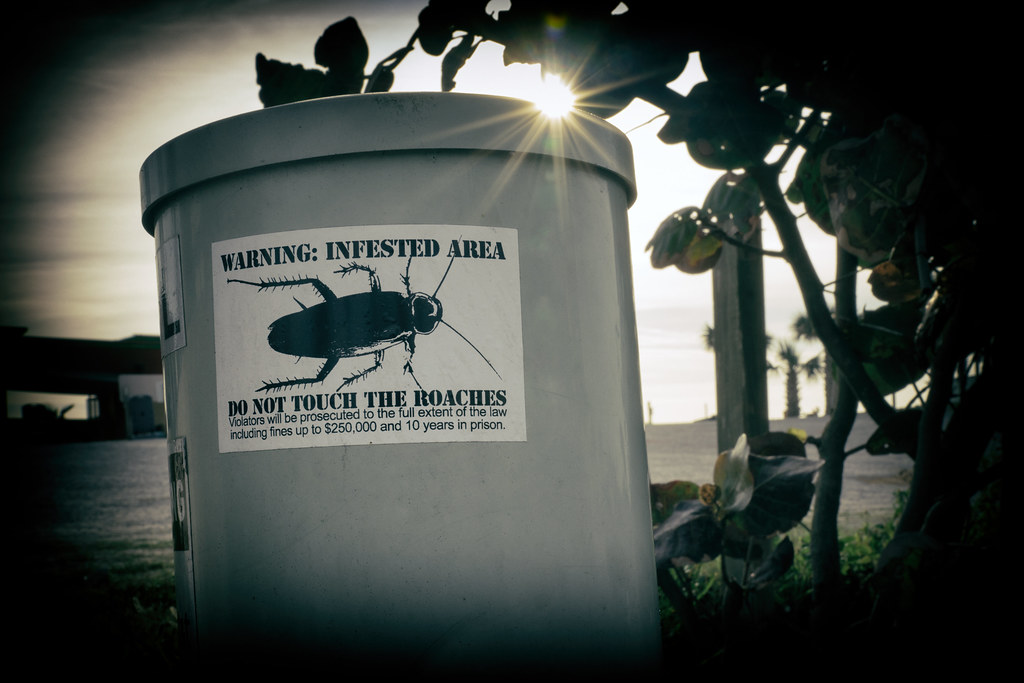What Kills Oriental Cockroaches?
Oriental cockroaches, also known as waterbugs, are common household pests that can be difficult to get rid of. Unlike other types of cockroaches, oriental cockroaches prefer cool, damp areas and are usually found in basements, crawl spaces, and sewers. While they don’t spread disease like German cockroaches, oriental cockroaches can still contaminate food and surfaces and their presence indicates problems with moisture or sanitation.
Fortunately, there are several highly effective methods to kill and control oriental cockroach infestations. This comprehensive guide covers the top techniques for getting rid of waterbugs, with tips on using both chemical and natural treatments.
Identifying Oriental Cockroaches
Before treating an oriental cockroach problem, it’s important to confirm the type of roach you’re dealing with. Oriental cockroaches (Blatta orientalis) have distinct physical features:
- Dark brown to black in color
- 1 to 1 1⁄2 inches long
- Do not fly, unlike other roach species
- Male oriental cockroaches have short wings that cover only 3⁄4 of the abdomen
- Females have very short non-functioning wings
Oriental cockroaches prefer cool, moist environments and are especially active at night. During the day, they hide in dark cracks and crevices near sources of water. Common places to find them include:
- Basements and crawlspaces
- Floor drains and pipes
- Sewers and septic tanks
- Cool, damp locations outdoors
Unlike German cockroaches that carry disease, oriental cockroaches are not major disease vectors. However, they can still contaminate surfaces and food with bacteria and trigger allergies. A large infestation is also a sign of excessive moisture or unsanitary conditions.
Chemical Pesticides
Chemical insecticides and repellents are effective options for eliminating oriental cockroaches. Professional pest control using commercial-grade chemicals provides the best results. But several retail pesticides also work if applied correctly.
Professional Pest Control
Hiring a licensed exterminator is the most thorough way to treat an established oriental roach infestation. Professionals have access to stronger EPA-registered chemicals that kill cockroaches on contact and provide residual control.
Common active ingredients in professional roach killers include:
- Fipronil: Kills cockroaches through ingestion and contact. Provides up to 3 months of residual control indoors.
- Indoxacarb: Fast-acting non-repellent that stops oriental roaches from feeding quickly.
- Imidacloprid: For outdoor use to create a treated barrier around the home.
Professional pest control involves thoroughly treating affected rooms, entry points, and potential nesting areas. Some companies also apply outdoor perimeter treatments. Expect to pay $200-$500 depending on the size of your home.
Retail Cockroach Killers
For mild infestations, retail sprays and baits can help eliminate oriental cockroaches:
- Aerosol sprays: Kill on contact and provide some residual control. Look for active ingredients like pyrethroids, pyrethrins, or fipronil.
- Liquid concentrates: Diluted and applied as a crack and crevice treatment. Longer residual than sprays.
- Dusts: Applied into wall voids and secluded areas roaches hide. Boric acid is a common active ingredient.
- Baits: Roaches eat the bait and bring it back to nests to kill other roaches. Use brand name baits like Combat, Raid, or Advion.
When using retail pesticides, focus on treating areas where roaches are spotted, nesting, and entering the home. Reapply every 2-4 weeks until infestation is under control. Baits and boric acid dusts provide the longest residual.
Application Tips
Follow these tips to safely and effectively apply retail cockroach killers:
- Read all label instructions carefully before using any pesticide.
- Only apply chemicals in locations listed on the label. Most cannot be used directly on food surfaces or dishes.
- Focus on cracks, crevices, and hidden areas like under appliances, behind cabinets, around plumbing pipes and drains. Avoid treating open areas.
- Use baits and gels near pest entry points and harborage areas like wall voids, but not excessively.
- Do not spray pesticides directly at cockroaches as this causes them to scatter and reduces effectiveness.
- Wear protective gloves and wash hands after applying pesticides.
- Keep children and pets away during application and until treated areas are dry.
- Properly ventilate treated areas before re-entering.
Continue monitoring and retreat as needed until the infestation is eliminated. Combine chemical treatments with sanitation and moisture control methods for best control.
Natural Remedies and Homemade Sprays
For a non-toxic approach to killing waterbugs, some common household products make effective natural cockroach killers:
Diatomaceous Earth
Diatomaceous earth (DE) is a powder made of crushed fossils that kills insects through abrasion and dehydration. Apply a fine layer of food grade DE into cracks, crevices, and roach entry points. As roaches crawl through the powder, it sticks to their bodies and damages their exoskeletons. Reapply every 2-3 weeks.
Boric Acid
Like DE, boric acid is an abrasive powder that kills cockroaches through contact. It also acts as a stomach poison if ingested. Use a bulb duster to apply a fine coat of boric acid into wall voids, under appliances, etc. Keep out of reach of children and pets.
Essential Oils
Strong-smelling essential oils like bay, cedarwood, citronella, eucalyptus, lemongrass, peppermint, and tea tree naturally repel roaches. Make homemade sprays by adding 10-15 drops of oil to water in a spray bottle. Spray onto baseboards, shelves, and other surfaces, but avoid directly spraying exposed food.
Vacuuming
Thoroughly vacuuming areas where cockroaches hide helps remove eggs and limit food sources. Use the crevice tool to get into tight spaces. Empty the vacuum immediately after into an outdoor trash can.
Sanitation and Moisture Control
Good sanitation and fixing moisture issues is key to keeping oriental roaches under control. Eliminate clutter such as stacks of paper and cardboard. Fix any plumbing leaks. Keep drains covered and repair cracks in foundations. Install dehumidifiers if needed. Removing food, water, and shelter makes homes less appealing to roaches.
Preventing Oriental Cockroaches
Once you get rid of an oriental cockroach infestation, take proactive steps to prevent future problems:
- Install door sweeps, window screens, and seal cracks and openings to prevent roach entry.
- Clean up clutter and food debris that serve as breeding areas.
- Fix plumbing leaks and eliminate excess moisture.
- Drain standing water under potted plants.
- Ventilate damp basements and crawlspaces.
- Keep trash and recycling bins covered and empty frequently.
- Apply boric acid or diatomaceous earth into wall voids as a repellent.
- Use dehumidifiers to maintain humidity under 50%.
- Clean drains and pipes regularly to remove organic matter.
Catching oriental cockroach problems early is key. Inspect regularly for signs like roach droppings, odor, and shed exoskeletons. Set out glue boards or sticky traps to monitor for activity. Call a pest professional at the first sign of roaches.
With the right combination of chemical treatments, natural remedies, and preventive measures, you can get rid of oriental cockroaches and keep them from coming back. Maintaining clean, dry conditions indoors and sealing entry points shuts down sources of food, water, and shelter for roaches. Apply perimeter treatments like diatomaceous earth outdoors. Stay vigilant and act quickly if roaches do appear again before they multiply into a large infestation.







